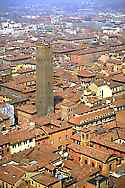
I am very thankful that in accepting Kosrae as a place of work, the body of work experience that I have gone through is helping me a lot. My education at UP has provided a lot of clinical experience to look into different medical cases. On the other hand, my residency training in general surgery in the Philippines and my fellowship in Bologna, Italy had helped me a lot on how to manage the best possible way for a patient. Being in an island where there amenities are lacking, my rural oriented type of training has boosted my adjustment and adaptation in the area. My highly technical training in Italy had given me better techniques and surgical savvy.

Even, my masterals in management at the University of the Philippines have come in handy in this intercultural exchange and interaction. Having been grounded in organizational behavior, I was able to get to mainstream Kosraean life easier because adjustment and respect for culture had become a learned behavior in my case. Although, I get picky at times when I feel that my intelligence is assaulted but I simmer down at once because I know I am here to work for them.
I am so thankful that I have met well-meaninged countrymen here. I can share with them my thoughts and feelings. And it is productively interactive. I am thankful that I have met and interacted with the best of what our country can be proud of – the Filipino. Although, we are of different persuasions, I found them very supportive. Their contribution to Kosraean development can’t be faulted.
The death of one long-staying Filipino worker in Kosrae who had married and have joined mainstream Kosraean life showed the camaraderie and solidarity of the Filipino community in Kosrae. They made the coffin for Mang Bing Soriano. They conducted a catholic service during the wake and they sang songs of praise to God. Some helped in the cooking and during the burial; they were in full force as they prepared the graveyard for Mang Bing. Burial practices in Kosrae are very much different compared to the Philippines. For one, there are no embalming services; hence, they will have to bury the dead within 24 hours. There are no common cemetery grounds; therefore, they bury their dead in their front or backyard.
The life of Mang Bing is a story in itself. But suffice to say that it is full of joys, pain and more pain as he approached the twilight of his years. Having no child from his marriage to the Kosraean woman and only an adopted child to call his own, Mang Bing’s last days were really crucifying. He looked back to the olden days and he remembered his family back in the Philippines. But he can’t turn back the hands of time. Death is in his doorstep. We can only offer prayers for him and wish that we learn a lesson or two concerning his life story.

No comments:
Post a Comment